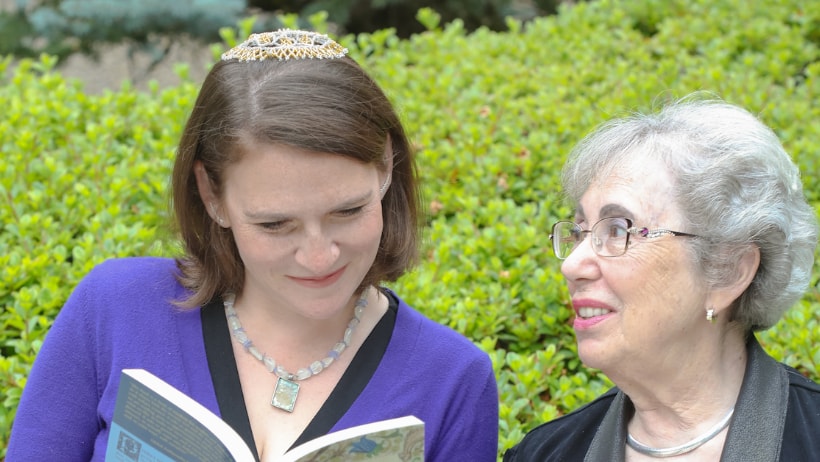As I was writing Pirkei Imahot with Lois Shenker two years ago, we both challenged each other to come up with three-word bios for ourselves. We’d asked our other contributors for the same thing, so we thought we’d better do it too. I really struggled with this task. How would I represent myself in three words? Am I a “mother, rabbi, friend”? Am I a “mother, daughter, wife”? Am I a “teacher, learner, preacher”? I went through what felt like an entire dictionary of adjectives to try to describe myself in only three words. I always left the exercise feeling like I’d left out an essential piece of who I am. I am a mother and a daughter, I am a wife and a sister, I am a teacher and a preacher, I am a rabbi and a friend, I am silly and serious. Each time I picked one adjective, I felt like I was somehow diminishing another element of my being.

The truth is, as we evolve in life we go through multiple titles, multiple personality changes, and multiple identifiers. The Israelites as a nation are themselves experiencing this phenomenon as they have left Egypt and become their own nation. In Parshat Bamidbar, which we read this week, we read about the appointment of the leaders of the army that will guide the people along with Moses, Aaron, and the other leaders of the tribes. We learn of the accounting of the eligible soldiers over 20 years old, the special purpose of the tribe of Levi, and the order of the encampments for the travels of the children of Israel in the wilderness.
The order of the encampments is part of the process of God trying to set up a society that identifies the individual tribes and connects them to the greater community. In chapter 2, verse 2 we read:
The Israelites shall camp each with his standard, under the banners of their ancestral house; they shall camp around the Tent of Meeting at a distance.
In this one verse there are three different elements of identity: the self (the standard), the family (the ancestral banners), and the community (the Tent of Meeting).
All this time I had been trying to pick three individual characteristics that define me, but perhaps our identities are threefold by nature. According to this text of the Torah, our identity is who we are for ourselves; how we connect to our home base, whether it’s the family that raised us or the family we choose; and our community, the places in which we congregate, celebrate, and share publicly. The real challenge then is not coming up with the identifiers themselves, but working to make sure each of these three categories supports the person you desire to be.



